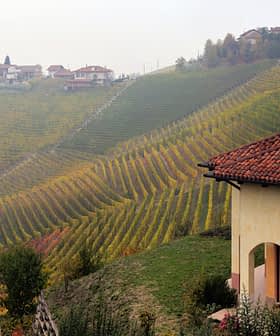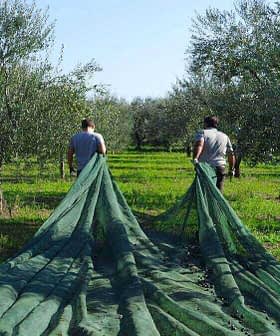Report on Italian Olive Oil and the World Consumer
The first report on Italian extra virgin olive oil and the world consumer has been released by Extract, the observatory set up by Unaprol and Ixè
 Olive Oil Times
Olive Oil TimesThe first report on the Italian extra virgin olive oil and the world consumer has been released by Extract, the observatory set up by Unaprol, the largest organization of Italian olive oil producers, and the research institute Ixè.
The first of its kind research gives an idea of perceptions and expectations and habits of consumers in the world with regard to Italian extra virgin olive oil, and is based on a series of 1,214 interviews conducted with international attendees of the Universal Exhibition Expo 2015 in Milan, from 3 to 8 October, 2015.
“The report finally traces the world consumer profile about the knowledge of the product,” said the president of Unaprol, David Granieri. “Now we make available this survey to the institutions in order to improve the intervention policies in the sector.”
According to the report, 86 percent of those surveyed know, or at least have heard of, extra virgin olive oil, with the United States at the top of the list with 98 percent awareness, while the lower percentage is registered in Asia (76 percent), in particular in China. With regard to producing countries, 72 percent of consumers know that Italy is a producer of extra virgin olive oil. Awareness in America and Europe (with the exception of the UK) is very high. New Zealand and Australia show a less-than-average level of recognition. The area with the lowest percentage is Asia again, especially China.
A good half of consumers are aware that the Italy has different areas of production and, among local productions, Southern Italy is the best-known: The European (87 percent in Austria) and American (70 percent in the U.S.) markets are informed about the production in the three macro-areas, while few people in Asia know about production in Northern Italy.
Regarding the reputation of olive oil producing countries, Italy ranks first in the global market, followed by Spain, Greece and Portugal, while in Europe, Spain is the most renowned country for production. In Asia, Spain ranks first again but people have a lower perception of producing countries: 33 percent of those questioned do not know which countries produce olive oil. In the Americas, Spanish production is well known, followed at a distance by Greece and Portugal.
Concerning consumption, frequent users of Italian extra virgin olive oil are 37 percent of those surveyed while the remaining 63 percent say to use EVOO rarely or never. The higher percentages of Italian extra virgin olive oil consumers are registered in Europe (particularly France, Austria, and Russia), U.S. and Central and South America. This number could rise very rapidly as the average propensity to buy Italian EVOO regards the 75 percent of consumers, with peaks in Europe and the Americas: the absolute majority of them believe that price is not or would not be an issue at the time of purchase, provided that they can have the best quality.
EVOO in the world is mainly used for seasoning, especially vegetables (87 percent), then meat, fish and pasta (67 percent) when a little over 40 percent of consumers use it for cooking and frying, and a slightly lower percentage uses it as an ingredient for cakes and bread (17 percent).
About 20 percent of consumers buy EVOO for aesthetic and curative purposes: in particular, in Asia it is used with these motivations and as an ingredient more than in other countries, but less for cooking and frying, and as a condiment. Among Europeans, the France use it for beauty more than the others, while in UK, Netherlands and Eastern Europe it is more widely used in recipes of cakes, cookies, and bread.
55 percent of buyers in the world read the label when they buy a bottle of liquid gold. 38 percent confess to reading it occasionally while only 7 percent never read it. The United States is the country where the information on the bottles are more carefully consulted, followed by 60 percent of European consumers. In Asia, Japanese citizens are the most scrupulous in this regard.
The report reveals that when a label contains an Italian name or brand, 54 percent of consumers believe that they are buying an Italian product. The issue of Italian sounding can potentially affect 60 percent of consumers in Europe, 44 percent in Asia, where Chinese consumers are more doubtful, and 67 percent in the U.S. However, 99 percent of consumers have the clear perception that the Italian sounding regards food adulteration and cheating on consumers.
“Italy is at the top for rules on food counterfeiting,” said the president of Unaprol, David Granieri, pointing out that this country has a system of consumer protection rules that is now serving as an example for other countries. “We are glad for the position expressed by the Justice and Agriculture Committees that improved the decree avoiding the danger of the decriminalization,” he added. “In this regard, along with the report we consign to the institutions the feasibility study of a trademark to support the whole supply chain and characterize on the global market the quality of authentic Italian extra virgin olive oil, and which include economic, ethical against undeclared work, and superior quality parameters of Italian products.”








